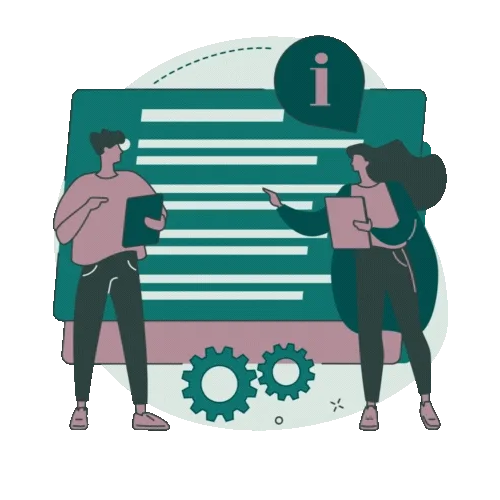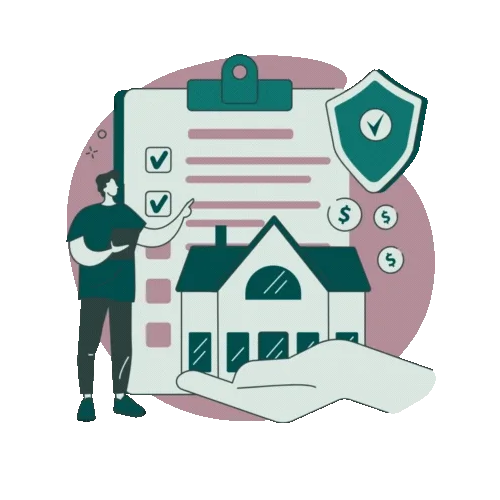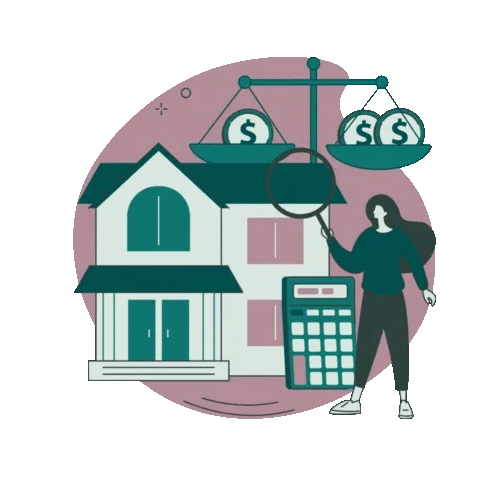Mortgage Terms Made Simple
The Ultimate Canadian Homebuyer Glossary
Are you feeling a bit lost in the world of mortgages? Don’t worry—you’re not alone. Many people in Canada find mortgage terms complicated. This Mortgage Terminology Guide breaks down all the key words you need to know so you can feel confident when buying or refinancing a home. By the end of this guide, you’ll know the meaning of important terms like amortization, fixed-rate mortgages, CMHC insurance, and more. Best of all, we’ll keep things simple and easy to understand. Let’s get started!

On this Page

Why Understanding Mortgage Terms Matters for Canadians
Buying a home is a big step, and it’s often the largest purchase you will make. When you understand mortgage terms, you can:
- Save Money: Knowing the difference between types of mortgages can help you choose the best option, so you don’t pay extra interest or fees.
- Feel Confident: You’ll feel in control when you meet with lenders or mortgage brokers.
- Make Informed Decisions: Choosing between fixed and variable rates, or understanding amortization periods, means you’re shaping your financial future wisely.
Whether you’re a first-time homebuyer seeking affordable mortgages or you’re refinancing an existing home loan, these terms will help you navigate the Canadian mortgage market like a pro.
Quick Introduction to Mortgage Basics
Before we dive into specific words, let’s define some core ideas:
- Mortgage: A loan you get to buy a home or property. You agree to pay it back over time, plus interest.
- Lender: A bank, credit union, or other financial institution that gives you the mortgage.
- Borrower: The person or people who take out the mortgage and promise to repay it.
Key Mortgage Terms Explained
 Amortization
Amortization
Definition: The process of paying back your mortgage over a set number of years—often 15, 20, or 25. Each payment covers some interest and some principal (the original amount you borrowed).
Example: If you pick a 25-year amortization, you’ll make regular payments (often monthly) until your loan is fully paid off in 25 years.
Why It Matters: A longer amortization means smaller payments each month but more total interest paid over time. A shorter amortization means higher monthly payments but less interest overall.
Annual Percentage Rate (APR)
Definition: A number that shows the total cost of borrowing money each year, including the interest rate and certain fees.
Example: If your APR is 3.2%, that means if you borrow $100, you pay $3.20 in yearly costs for that loan (in a simplified sense).
Why It Matters: The APR helps compare one mortgage to another, even if fees differ. It shows the “true” cost of the loan in one simple percentage.
Appraisal
Definition: A professional estimate of what your home is worth on the market. An appraiser checks the home’s size, condition, and location to decide a fair value.
Why It Matters: Lenders in Canada want to ensure the mortgage isn’t bigger than the home’s value. If you default (stop paying), they need to know the property can cover the loan.
 Bridge Financing
Bridge Financing
Definition: A short-term loan that helps you buy a new home before selling your current one.
Example: If your old house is still listed for sale but you found a new home to purchase, a bridge loan “bridges” the gap so you don’t have two full mortgages at once.
Closed Mortgage
Definition: A mortgage with strict rules on making extra payments or paying off the loan early. It often comes with a lower interest rate compared to an open mortgage.
Why It Matters: If you think you’ll want to pay off the mortgage fast, a closed mortgage might limit that option. However, if you want a lower rate and don’t plan on prepaying too much, this might be your best bet.
Co-signer
Definition: Someone who agrees to repay the mortgage if the main borrower can’t.
Example: A parent might co-sign for an adult child who has limited credit history, making it easier to qualify for a mortgage.
Debt-to-Income Ratio (DTI)
Definition: The amount of your monthly debt (like credit cards, car loans, or another mortgage) compared to how much money you earn each month, shown as a percentage.
Why It Matters: Canadian lenders often use DTI to decide if you can afford a mortgage. A lower DTI is better.
 Down Payment
Down Payment
Definition: The money you pay upfront when buying a home. In Canada, this can be as low as 5% on homes under $500,000, but if you have less than 20%, you’ll need mortgage default insurance.
Actionable Tip: Saving more down payment can reduce your monthly costs.
Equity
Definition: The difference between your home’s current market value and the amount you still owe on your mortgage.
Example: If your home is worth $400,000 and you owe $300,000, you have $100,000 in equity.
Fixed-Rate Mortgage
Definition: A mortgage with an interest rate that stays the same for the entire term, usually 1 to 5 years (though sometimes up to 10).
Why It Matters: It’s predictable—your payments don’t change. This is popular if you like stability.
High-Ratio Mortgage
Definition: A loan where the down payment is below 20% of the home’s value, requiring mortgage default insurance (e.g., from CMHC or another insurer).
Why It Matters: You can buy a home sooner with less money down, but you pay extra for insurance.
 Home Buyers’ Plan (HBP)
Home Buyers’ Plan (HBP)
Definition: A Canadian government program letting first-time homebuyers withdraw up to $35,000 from their RRSP (Registered Retirement Savings Plan) to use as a down payment—tax-free (though you must pay it back into the RRSP over time).
Interest
Definition: The fee you pay to borrow money, expressed as a percentage of the mortgage.
Fun Fact: On a $300,000 mortgage, interest can add tens of thousands of dollars over 25 years—why choosing the right rate is vital.
Loan-to-Value (LTV)
Definition: A ratio comparing the size of your mortgage to the home’s value. For example, a $300,000 loan on a $400,000 home is 75% LTV.
Why It Matters: The bigger your down payment, the lower your LTV, which can lead to better rates.
Mortgage Broker
Definition: A licensed advisor who shops around with different lenders to find you a suitable mortgage deal.
Tip: Brokers in Canada can sometimes give you access to special rates not offered directly by banks.
 Mortgage Default Insurance
Mortgage Default Insurance
Definition: Insurance that protects lenders if a borrower defaults. Required in Canada for down payments under 20%. Common providers include CMHC, Canada Guaranty, or Sagen.
Mortgage Term
Definition: The period you’re locked into your mortgage deal, often from 6 months up to 5 years (sometimes more). You’ll renew or refinance when your term ends.
Open Mortgage
Definition: A mortgage that lets you pay extra or pay it off in full without penalties, usually at a higher rate than a closed mortgage.
 Porting
Porting
Definition: Moving your existing mortgage from one property to another. If you buy a new home, porting can help you avoid penalties or keep a good interest rate.
Pre-Approval
Definition: A letter from a lender saying how much you qualify to borrow. This helps you shop confidently for homes within your price range.
Prepayment Privilege
Definition: Allows you to pay extra on your mortgage (beyond normal payments) without fees. Common examples are increasing monthly payments or making a lump sum each year.
Principal
Definition: The original amount of money borrowed, not counting interest or fees.
 Rate Hold
Rate Hold
Definition: A time period—often 30 to 120 days—where a lender “locks in” a specific rate so if rates go up, you still get the lower rate.
Refinancing
Definition: Getting a new mortgage to replace your old one—often to get a lower interest rate or access your home’s equity.
Renewal
Definition: When your mortgage term ends, you either renew with your current lender or switch to a new lender for a new term.
Stress Test
Definition: A rule where Canadian lenders must ensure you can pay your mortgage at a higher interest rate than your contract rate. This ensures you’re safe if rates go up.
Example: If your mortgage rate is 4.19%, the lender might test if you can still afford payments at ~6% or higher.
 Title Insurance
Title Insurance
Definition: Protects you and your lender against property title problems, like hidden liens or fraud.
Variable-Rate Mortgage
Definition: A mortgage where your interest rate can change if the prime rate changes. You might pay less if rates drop, but risk higher payments if rates rise.
FAQs
What’s the difference between a fixed-rate and variable-rate mortgage?
A fixed-rate mortgage has the same interest rate for the entire term, so your payment doesn’t change. A variable-rate mortgage follows the prime rate, so the interest can go up or down.
Why is mortgage default insurance required for less than 20% down?
In Canada, if your down payment is under 20%, your mortgage is “high-ratio.” Lenders require insurance (often through CMHC) so they’re covered if you can’t pay.
How long should my mortgage term be?
This depends on your goals. A shorter term (1–2 years) offers flexibility but might have a higher rate. A longer term (3–5 years) gives you stability. Compare options with your mortgage broker.
What is the “stress test” rate?
It’s a higher rate used by Canadian lenders to ensure you can still afford payments if interest rates climb. The government sets a minimum level, so you’re tested at the higher rate even if your actual rate is lower.
Can I pay off my mortgage early without penalties?
Only if you have an open mortgage or a prepayment privilege that covers the amount you want to pay. Otherwise, you may face penalties.
Understanding these mortgage terms is key to making smart decisions in your home-buying or refinancing journey.
- Curious about your affordability? Use our Mortgage Affordability Calculator to see how much you might qualify for.
- Need personalized advice? Our friendly team at The Genesis Group is here to help you explore all your options.
By arming yourself with this Mortgage Terminology Guide: Essential Terms Explained, you’re ready to talk with lenders or brokers with confidence—knowing you’re well-informed and prepared.
- Comprehensive Genesis Mortgage Calculator – for more detailed calculations, lumpsums, and payoff schedules.
- Canada Mortgage and Housing Corporation (CMHC) – official government-backed info on mortgage insurance, stress tests, and first-time buyer programs.







